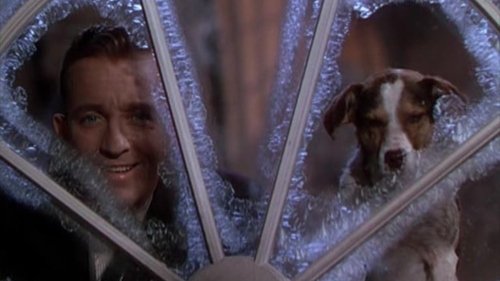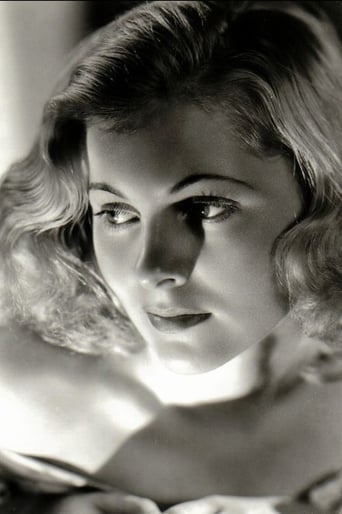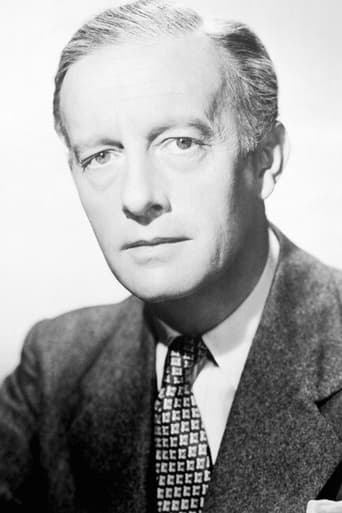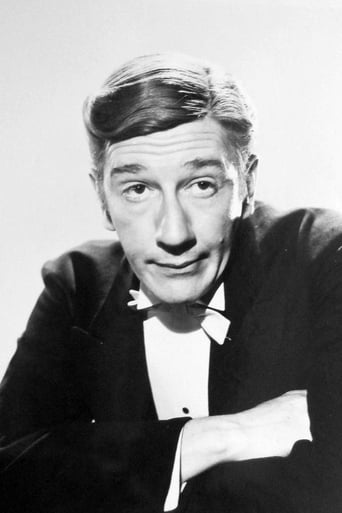AniInterview
Sorry, this movie sucks
SnoReptilePlenty
Memorable, crazy movie
Noutions
Good movie, but best of all time? Hardly . . .
Staci Frederick
Blistering performances.
MartinHafer
"The Emperor Waltz" is a surprisingly lightweight film considering it was directed by Billy Wilder. This is the same director who'd just won Oscars for "The Lost Weekend" and "Double Indemnity". And, while he also made some great comedies (such as "Some Like it Hot"), "The Emperor Waltz" is surprisingly lightweight--particularly since Wilder's Oscars came just a few years before this film. You'd have thought he would have merited a more prestigious project.Bing Crosby stars as Virgil Smith--a traveling salesman who is trying to make a sale to Emperor Franz Josef of the Austria-Hungarian Empire!!! This is utterly ridiculous and you just have to turn off your brain to enjoy much of the film--such as the notion of his falling in love with a Countess, the Emperor and Virgil having an informal conversation as well as a dog that is receiving psychotherapy! Yes, it's all very silly and Joan Fontaine and Bing Crosby do make a hilariously mismatched couple. Yet, despite the film's many shortcomings, it IS entertaining. A bit brainless...but entertaining. Certainly no even close to either actor's best but kind of cute.By the way, buried under all that makeup and facial prosthetics is Richard Hayden--believe it or not!
Kevin Clarke
I find it amazing, that Wilder - 12 years after the Broadway success of Erik Charell's WHITE HORSE INN, and 18 years after the Berlin premiere of the show by the same creative team (a version Wilder certainly saw, since it was the talk of the town he lived in at the time) - re-uses many of the elements that made that revue-operetta such a smash hit: those pop art Tirolean costumes and villages, the lake, the jodels, the dancers in Lederhosen and Dirndl... some of the village scenes and costumes actually look, as if Wilder was using the original operetta-designs by Ernst Stern. He even quotes original operetta music (by Lehár, instead of Ralph Benatzky, just to mislead the viewer - and maybe avoid copyright problems.) Also, the basic idea of the Charell/Hans Müller operetta is re-used here: a man from a different culture ends up in the Alps and has to cope with a totally different 'Austrian' way of life. In the original it's the Berlin industrialist Giesecke, in the movie it's Bing Crosby as the American salesman. In both cases, the clash of cultures is delightful to watch and makes for some hilariously comic scenes. Perhaps, in the movie, Crosby is not the ideal 'ironic' actor needed for a story of this kind... (he plays the story rather 'straight'). Still, Wilder makes sure the viewer understands that it is all a gigantic joke. (Actually, he even shows the Austrian Kaiser as a silly old fool, exactly like in the operetta.) It would be interesting to analyze show and film. Even though theater historians prefer to ignore films, and film historians prefer to ignore theater productions. But, as Richard Norton pointed out in his essay on the career of WHITE HORSE INN in the English speaking world, Warner Brothers bought the rights for a film version of the operetta and thought of casting Al Jolson, Maurice Chevalier, Eddie Cantor or Jack Okie in the movie. Just imagine what a movie it would/could have been with Bing Crosby as the suave lead, and with Billy Wilder directing. Perhaps WHITE HORSE INN never made it to Hollywood, but this film is the closest the operetta ever got to being turned into a big, splashy, wonderful, colorful and very, very funny film. Definitely worth watching - and copying, for anyone who wants to put on WHITE HORSE INN on stage. Wilder know how to make these kind of stories sparkle and shine. Visually and musically.
jandesimpson
It would be hard to find two consecutive feature films by a director of significance as different from one another as "The Lost Weekend" and "The Emperor Waltz", the former as hysterically hard hitting as anything Hollywood produced in the 'forties, the latter pure schmaltzy escapism. The first and most obvious conclusion is that Billy Wilder, as part of his contract to Paramount, was doing as he was told in producing a piece of box office confectionery. And yet there is no escaping the credits which bill the script as being by Wilder himself and Charles Brackett. So he must have known what he was doing. Superficially it looks and sounds like a nostalgic recreation of Wilder's home country, Austria, during a golden period before the First World War when the only thing to unsettle the court of the Emperor Franz Joseph was the entry of an itinerant American phonograph salesman and his mongrel dog. It is said that it might have been a different film but for the fact that Wilder had to accept Bing Crosby for the leading role and that he had to cater for the audience expectations of one of the most popular stars of the day, hence the odd song, though scarcely enough to make it a musical in the fully accepted sense. There is the odd witty line such as Franz Joseph's remark that were he to shave off his whiskers it would create consternation in changing his image on the country's currency. Apart from this it is hard to find much in the way of Wilder's characteristically cracking dialogue. The parallel romance between Bing and a countess and their dogs Buttons and Sheherazade rather palls after a while but the pretty visuals with the Canadian Rockies substituting for the Austrian Tyrol have some compensations. Bing plays his part with star flair although the same can hardly be said of Joan Fontaine as the countess. Aside from the virtue of a gorgeous hair-do, she acts with a stilted woodenness that is light years away from her work in "Rebecca" and "Jane Eyre". Still there is generally something engaging to catch the eye including one wonderfully kitschy moment when all the lasses from a village where violins are made play their instruments. When Wilder made "The Emperor Waltz" he already had to his credit that immortal film noir "Double Indemnity". 1947/48 must have been a particularly bad period for him as he followed his Austrian romance with easily his worst effort, "A Foreign Affair", a third-rate "Ninotchka" tale set in postwar Berlin with Jean Arthur, an otherwise good actress, hardly a match for Garbo. For all its faults "The Emperor Waltz" is infinitely more enjoyable though there is little indication of the talent that was to produce "Some Like It Hot", "The Apartment" and "Kiss Me, Stupid".
pzanardo
"The Emperor Waltz" is an underrated jewel, a true hidden treasure by the great Billy Wilder. The basic idea of the movie is authentic comic genius, Wilder's trade-mark superb wit: two parallel funny love stories, a canine one, of a dog with a blitch, and a human one, of the straightforward American guy Virgil (Bing Crosby) with the haughty Austrian Countess Johanna Augusta Franziska (Joan Fontaine), the respective masters of the pets.Virgil is a commercial traveller: his stubborn attempts to sell gramophones to (no less a person than) the Emperor Franz-Josef are irresistibly comic. And then the Countess' blitch is the predestined partner of the Emperor's dog, and so she needs to be treated with extreme care (including sessions of psychoanalysis): all the hopes of the over-noble but impoverished family of the Holena von Shwartzemberg-Shwartzemberg lie in her paws... But it's all too funny to be described: see the movie and enjoy yourself.The funny, gently mocking reconstruction of the Austrian Court and of its rituals at the beginning of the 20th century is stunning. The delightful subtleties are uncountable: see the gentry play lawn-tennis, and the footmen in white gloves who present the tennis-balls on a silver tray...All the actors make an excellent job, and there are no words to praise enough Richard Haydn as Emperor Franz-Josef. The cinematography, in bright, cheerful colors, is accurate and evocative. The costumes and the locations are magnificent. The film was intended to be a musical: however, we find in it just a pair of nice songs and a rather short ballet. I consider it a further merit of the movie: I'm not much fond of musicals.I highly recommend "The Emperor Waltz", a praiseworthy issue of Wilder's magic wit and talent.






